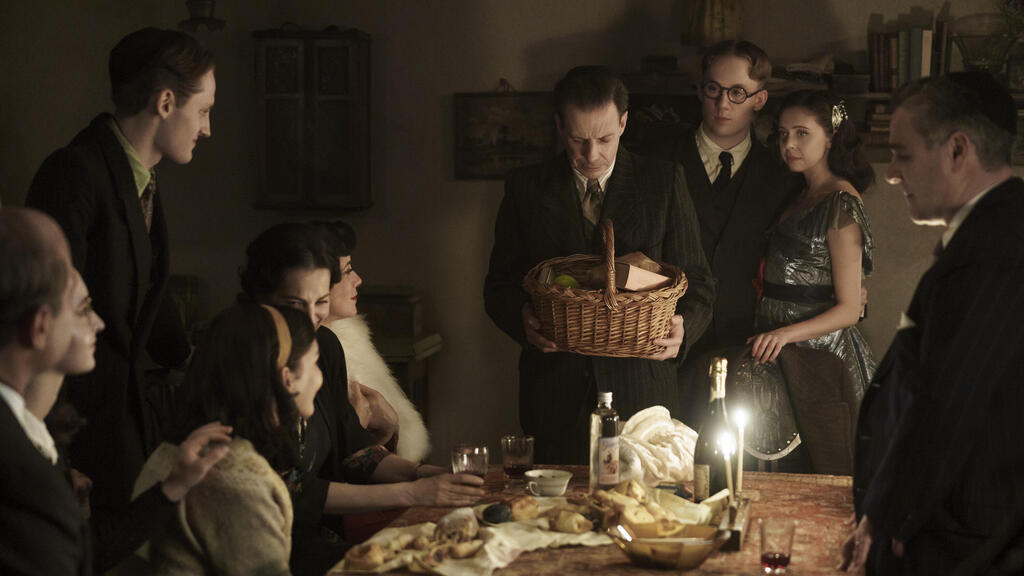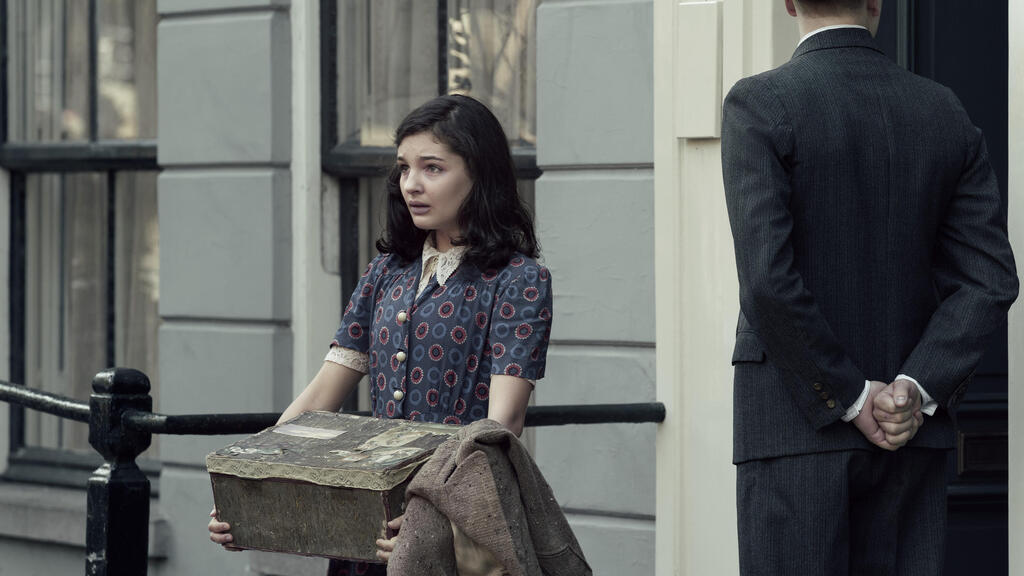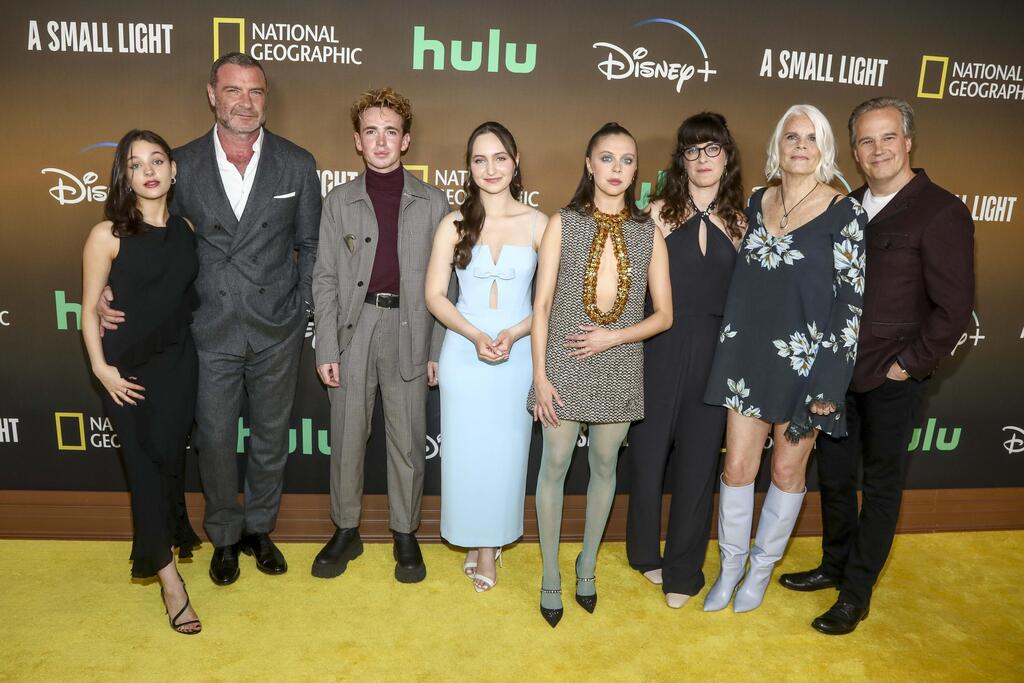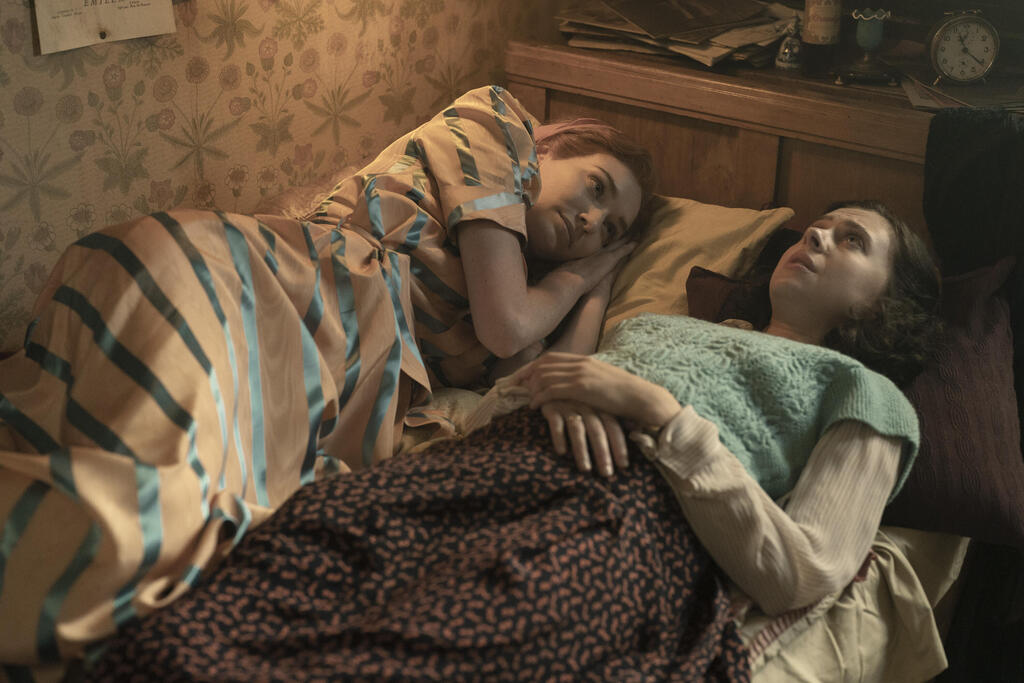A Small Light
(Video: Disney+)
Countless movies, TV series, and even comics have been inspired by the character of Anne Frank, in various languages. Some of them remained faithful to the iconic source material, "The Diary of Anne Frank." In contrast, others were free adaptations of the story of the young Jewish girl and her family under Nazi occupation.
Other Stories:
When American screenwriters Tony Phelan and Joan Rater visited the Anne Frank House in Amsterdam, they were deeply moved and determined to return to the tragic story without simply retelling it. This gave birth to the idea of the series "A Small Light," featuring Anne Frank and her family, but from the perspective of Miep Gies, the helper of Anne's father Otto Frank, who during their extended period of isolation in the attic, was their only link to the outside world. "Her personal story is amazing, and we wanted to explore what drove her to do what many others shied away from," says Phelan.
The series whose first two episodes premiered at the SXSW conference in Austin, is a production by Keshet Studios for Disney+, reminiscent of nostalgic films that are no longer common. At its center is Miep (voiced by British actress Bel Powley), initially portrayed as a rebellious and depressed teenager in Amsterdam. When she finds a job at the pectin factory of the Jewish-German businessman Otto Frank (Liev Schreiber), a close friendship develops between them, as well as with his daughters Margot (Ashley Brooke) and Anne (Billie Boullet).
When the Netherlands is invaded by the Nazis and Miep's Jewish family and several close friends gather in hiding in the attic, she is forced to mature quickly while risking her life and faces many conflicts in her personal relationships with her boyfriend Jan (Joe Cole) and in standing up against the cruel and suspicious world outside.
Joan Rater and Tony Phelan who are mainly known for "Grey's Anatomy", faced a new challenge here. Completely different. Unlike the medical drama series that has been running for 19 seasons and is based on a fictional plot and many characters created out of scratch and entering and exiting from episode to episode, in the case of "A Small Light", they had to be faithful to historical reality.
"The many many years working on Gray's Anatomy, taught us, a certain facility and understanding of structure that was very useful, even in creating something completely different, You know, you still structuring a whole eight-episode arc and it has to have through line and themes and aggressors Cliffhangers, which are important."
However, in current Hollywood, there is also the essential question of whether non-Jewish filmmakers like Rater and Phelan should tell a story deeply rooted in the trauma of the Jewish people during World War II. This issue, which comes as part of the identity politics in American society, did not remain outside the awareness of both filmmakers, who made sure to hire Jewish screenwriters and cast actors of Jewish origin in leading roles. However, their main justification is the character of a girl who was born in Austria into a Catholic family and was adopted as a child by Dutch socialist parents.
"I think that creative freedom is for all, but if someone will say, you know, it's just not your story or something like that because this is a Jewish heritage thing, someone will say that he has a point. And again, I'm not saying that, but I think so," Rater says.
"I would not want to write a version of the Diary of Anne Frank but I felt like I could tell the story of Miep and the people that she dealt with. And the fact that this was a story about her, and how she served, because she was an immigrant, like Otto, she serve, because she was an immigrant like him, as a conduit for Otto and Edith and their family and their friends into what life in the Netherlands was, she could speak the language, they shared a cultural similarity, and they constantly referred to Miep and Jan as their Dutch friends, as these are the people who helped them assimilate into the Netherlands as Germans. And so I feel very comfortable telling that story, making sure I have done the research, I have surrounded myself with collaborators that always bring a different perspective than mine."
One of the people with a different perspective is the Jewish director Susanna Fogel, who led the filming and came to their defense at this political correctness conference. "I think that you know, obviously the stuff is really complicated but to me, it can also be really simple," Fogel says.
"You know, it's not like there were three projects about Miep Gies and two of them by Jewish writers and the third by Joan and Tony. And I deprioritize the Jewish creators, to invalidate their perspective is sort of, I mean not that you are. But I'm just saying if you validate this perspective well what's the alternative not having a story for Miep Gies at? They researched her for years and years, and it's world history, it's not Jewish history, I mean it is also the history of the Jewish people but it's also the history of people who were involved in the lives of Jewish people, who are not themselves Jewish. It's a story about empathy and crossing those cultural lines to and not sort of like bifurcating."
"The allyship of having people that don't need to tell a Jewish story, telling a Jewish story is also meaningful. We need that. We need to not just have people sealed in their own specific boxes, saying 'This is my story and others are not allowed to tell it.' People need to be sensitive to the creation of a larger global community, of which we are all a part."
As far as cast, the main actors are of Jewish descent, as is the case with Bel Powley and Liev Schreiber, as well as the young actresses who portray the sisters Anne and Margot Frank, Billie Boullet, and Ashley Brooke.
The two young actresses admit that their intimate familiarity with their family's heritage helped prepare them for the role. "My grandmother was a Holocaust survivor, she passed away two years ago at the age of ninety," says Brooke, "she promised me that she would tell me her story, but it never happened because she developed Alzheimer's. Luckily, there's a recorded interview of her and from it, I learned about her story that I never knew. She spoke about moments of hope in a dark time, like people who were kind to her and guided her on how to survive with her sister. It was a fertile source of inspiration for Margot's role and that's why I'm grateful for this opportunity."
Boullet tells of a different kind of inspiration following her concerns as a Jew in Britain and France. "We always celebrated with family, but they always taught me that I had to be very careful about my Judaism in public because you never know who the people around you are, what they can say or do," she admits, "it's something I'm proud of but at the same time I'm afraid to show it openly. This experience and the fear of what hate-filled people can say or do, as much as today we live in a better society, was a source of preparation for the character. It wasn't easy during filming. It scares me to think of what other Jews in the world went through over the years and especially in that period, but this thought helped me illustrate her fear, her humanity. Non-Jews may not be able to feel it because it's a very specific situation. You can't fake it."
In general, portraying Anne Frank is a difficult task, especially for a young actress like yourself.
"She is a figure that everyone knows and respects, not an easy role to play. At first, I felt pressure and had to find a way to breathe throughout the process. I did as much research as possible in an attempt to get into her head and understand the way she thought, as opposed to what people thought about her. What helped me was the script by Tony and Joan that I relied on. I have a lot of respect for them for avoiding portraying Anne as a little, innocent girl. I liked that they were honest with their approach and humane. She is a complex human being. It was certainly a challenge to take on her character, but I wasn't worried because I felt confident and protected by the writing."
What certainly helped calm Boullet down was the fact that "A Small Light" is only her second TV appearance in her short career, and she receives a supporting role in the series. Although she is present, she is pushed aside when the center stage is occupied by Miep and Otto, and even her sister Margot. "What I love most about the series is that it's not about Anne Frank. Her story is told from Miep's perspective. The writers avoided retelling the same story that has been told many times in the past. Miep's story has not been told in the past, nor has Margot's, and that's where they both share the same stage with Anne Frank in an equal manner," Boullet asserts.
One of the thoughts that the series arouses in each of its viewers is what they would do if they were in the character's situation. Would they risk and sacrifice so much to help others, or would they just ignore the horrors outside? Phelan admits that he doesn't have a clear answer to this question, but he says that Miep's bravery has inspired him, and he hopes that many others will feel the same, especially in the Netherlands, against the backdrop of the local government's decision to release files from the archives about local collaborators with the Nazis. "This is a monumental event because suddenly people will discover that what their grandparents told them is not true," he says, adding that we need to learn and compare this story to what is happening in the world today."
"During the German occupation, people came from a tremendous variety of different identities. Some identified as Jews, others as Germans. What really affected us was that these people saw themselves as part of the modern world and could not imagine what was going to happen to them in this environment as they understood it. This is similar to what is happening in the United States these days. How can these things still happen now, after everything that has happened? This is a phenomenon that has greater cultural implications," says Phelan.
First published: 09:14, 05.05.23







